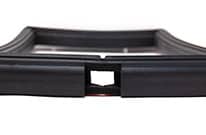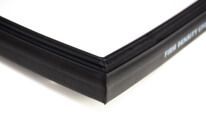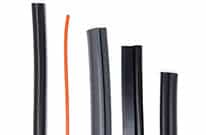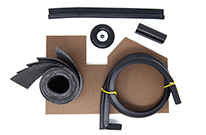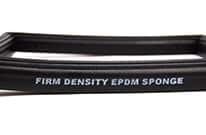Elasto Proxy has partnered with a manufacturer of aerospace silicones and is ready to fabricate aircraft parts from AA 59588, AMS, and MIL-DTL-25988 materials. Each batch we source comes with a certificate of analysis (COA) that contains laboratory test results and demonstrates compliance with a specific standard. The following sections describe the aerospace silicones and fluorosilicones you can buy from Elasto Proxy in Canada or the United States, and that we can fabricate into finished parts for you.
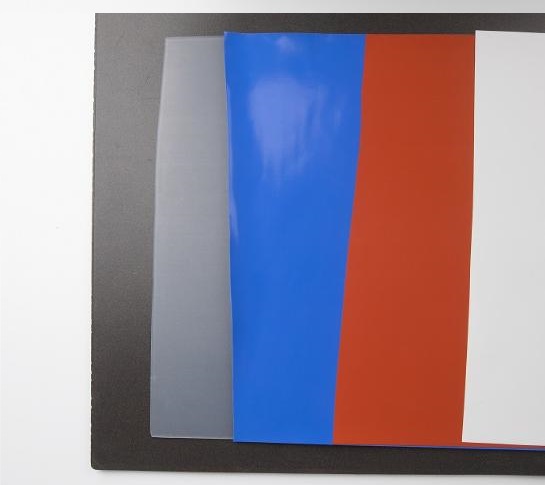
AA 59588 Silicones
AA 59588 is a U.S. General Service Administration (GSA) specification that divides aerospace silicones into six classes, each with durometer-based grades on the Shore A scale. A-A-59588, as this GSA specification is sometimes written, supercedes ZZ-R-765/GEN, an older standard referenced by National Stock Number (NSN) 5330-01-371-7183 to ensure standardization among military buyers in NATO countries. AA 59588 also contains commercial item descriptions (CID) with performance characteristics.
AA 59588 aerospace silicones are valued for their resistance to high temperatures, low temperatures, tear, and flex fatigue. Flex, or flexural fatigue, is cracking caused by cyclical stresses and strains. Small cracks propagate into larger cracks that, ultimately, can result in failure. Fully-compliant AA 59588 silicones must pass the DeMattia Flex Resistance test, which measures crack growth in inches over thousands of flexural cycles.
The table below provides an overview of the AA 59588 silicones that Elasto Proxy can fabricate into aircraft parts such as engine mounts, vibration-isolating mounts, and exhaust hangers. Other suppliers claim that their materials are A-A-59588 compliant, but our compounding partner can provide us with silicones that meet more than just non-flexural (e.g., tensile strength) requirements. That’s important because any time an aircraft is flown, factors such as atmospheric pressure and turbulence cause fatigue.
Class | Description | Grades |
1A | Low temperature resistant | 40, 50, 60, 70, 80 |
1B | Low temperature resistant Low compression set at high temperature | 40, 50, 60, 70, 80 |
2A | High temperature resistant | 40, 50, 60, 70, 80 |
2B | High temperature resistance Low compression set | 30, 50, 60 |
3A | Low temperature resistance Tear resistant Flex resistant | 30,50,60 |
3B | Tear resistant Flex resistant | 30, 50, 60, 70, 80 |
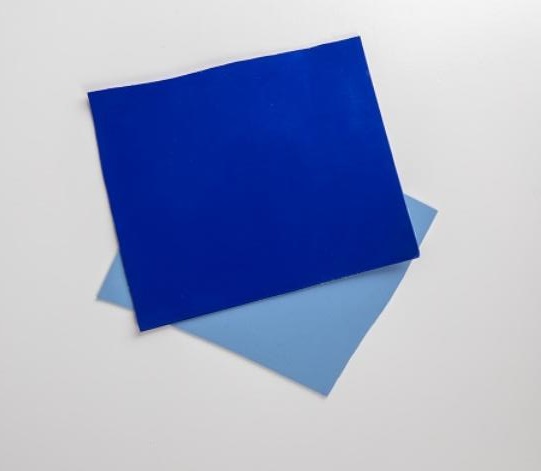
AMS Silicones
AMS silicones meet Aerospace Materials Specification (AMS) standards from SAE International, which was known formerly as the Society of Automotive Engineers (SAE). AMS specifications have four-digit numbers (e.g., AMS 3345) and are part of large and comprehensive database of aerospace materials. When AMS standards are revised, a sequential letter is appended to the numbered designation (e.g., AMS 3345G). Sometimes, AMS specifications are written as a long alphanumeric string (e.g., AMS3345G) without any spaces.
Silicones aren’t the only materials that have AMS numbers, but AMS silicones are used widely in aviation because they resist weathering and petroleum-based lube oils. They also remain flexible over a wide temperature range and resist heat aging. In addition, AMS silicones can be pigmented so that their colors match larger product designs. Typically, these materials are supplied as sheets, strips, tubing, extrusions, and molded shapes.
The table below describes the AMS silicones that Elasto Proxy can fabricate into aircraft parts.
AMS Number | Durometer | Description |
AMS 3301 | 40 | General-purpose |
AMS 3302 | 50 | Heat and weather resistant |
AMS 3303 | 60 | General-purpose |
AMS 3304 | 70 | Heat and weather resistant |
AMS 3305 | 80 | General-purpose |
AMS 3325 | 60 | Fuel and oil resistant |
AMS 3345 | 50 | 1000 psi |
AMS 3356E | 60 | Lubricating oil and compress set resistant Electrical grade |
MIL-DTL-25988 Fluorosilicones
MIL-DTL-25988 is a U.S. military detail (DTL) specification that covers fluorosilicones for aerospace applications. With their fluorine additions, these silicone elastomers resist petroleum-based fuels and oils, solvents, and harsh chemicals. MIL-DTL-25988 fluorosilicones also withstand a wide range of temperatures and maintain their tear and tensile strength when immersed in jet fuel. These fuel-resistant materials can withstand repeated flexing without stress cracking and remain flexible and rubbery.
The MIL-DTL-25988 specification divides compliant fluorosilicones into different types, classes, and grades. Type 1 materials are for O-rings and Type 2 materials are for sheets, strips, and extruded shapes. Type 2 fluorosilicones are also used in molded parts except for compression seals. Class 1 materials are designated for general-purpose use and Class 2 materials are high-strength compounds. The grades for MIL-DTL-25988 fluorosilicones correspond to the material’s durometer.
The table below describes the MIL-DTL-25988 fluorosilicones that Elasto Proxy can fabricate for you.
Type | Class | Grade |
2 | 2 | 70 |
2 | 1 | 60 |
1 & 2 | 2 | 70 |
2 | 1 | 40 |
2 | 1&2 | 50 |
2 | 1 | 80 |
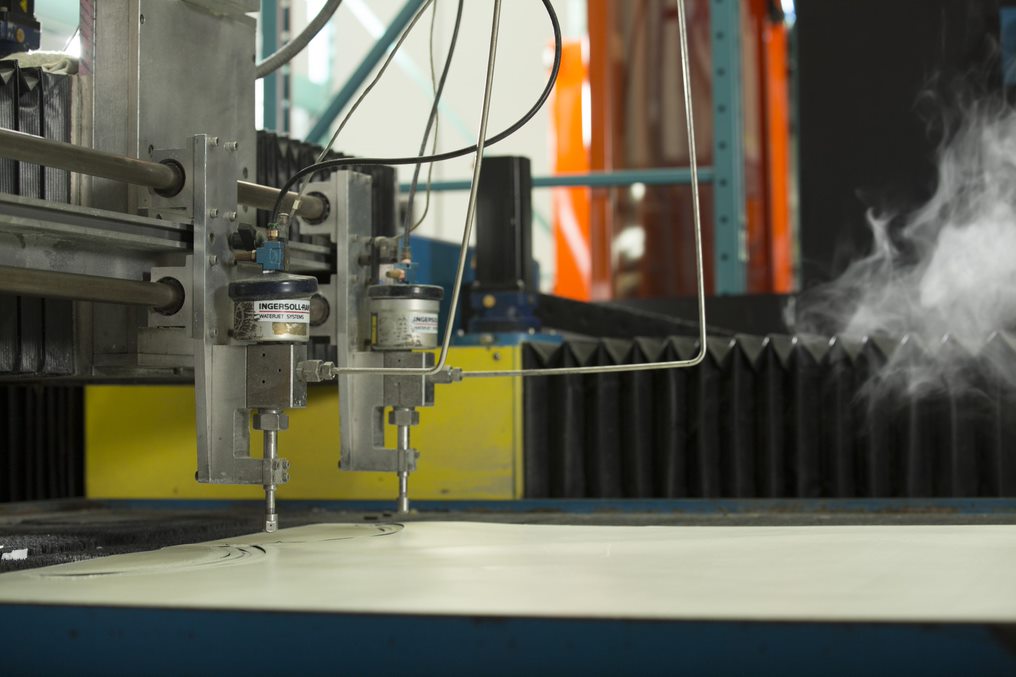
Aerospace Silicones and Fluorosilicones from Elasto Proxy
At our headquarters near Montreal, Quebec, Canada, Elasto Proxy’s fabricates AA 59588 silicones, AMS silicones and MIL-DTL-25988 fluorosilicones into aerospace parts from sheets, rolls, and extrusions. We can store your materials or finished goods at our Montreal-area warehouse, or at our facility near Toronto. Elasto Proxy is also bringing aerospace silicone products to U.S. customers through our branch in Simpsonville, South Carolina.
Elasto Proxy’s quality management system (QMS) is AS 9100 D certified and we operate four locations with clearly-defined scopes under ISO 9001:2015, upon which AS 9100D is based. For molded silicone aerospace parts, we’ve partnered with an AS 9100D certified molder. If you need silicone aerospace parts low-to-medium volumes, we invite you to contact us. With the strength of our supply chain, we can offer these materials in lower minimum order quantities (MOQs) than you might expect.




